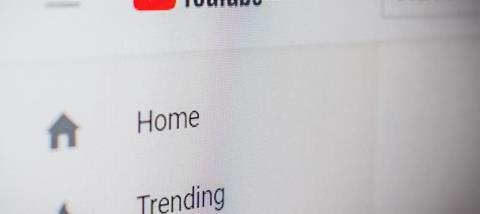
YouTube is a very different space for these guys. I would go on and consume – maybe look at funny videos or watch things that are entertaining – whereas for these guys it’s a space to collaborate, a space to get involved, to upload their own content.
In the research, we talk about it almost as a digital art gallery, where young people aren’t just being fed information, but can post their own stuff up and comment and collaborate with others. That’s really interesting when you look at what it means to share faith with young people.
What surprised us was that in Gen Z: Rethinking Culture, young people put social media as one of their top three most negative influences in their lives, but in this Gen Z: Digital Generation piece of research, there was some really interesting statistics around how they felt that social media made them feel happier (56 per cent). Only 36 per cent said that they were addicted to their social media accounts, which if you know any young people, there are certainly signs of addiction there!

So there was a real apparent lack of self-awareness about the effects of social media on this generation, and a different view of social media for them in the macro and the micro. So in the long term, they kind of get that this stuff can be harmful to their mental health. But in the short term they really use it as a way of relaxing. And so, what it looks like to raise awareness for this generation as we care for them and their mental health is an interesting thing.
When we asked the young people what they like to see YouTubers doing 61 per cent said they like to see them talking about something they’re passionate about. A high percentage also said that stuff they viewed online has changed their mind or opinion.
I think a mistake that someone of my age, who knows very little about how to communicate effectively on YouTube would be to try and do it myself. As an older generation we have wisdom that we can pass on to younger generations about how to effectively share faith online. Where they have the tools, we maybe have the wisdom.
Even yesterday I spoke to a friend who isn’t a Christian who is now thinking baotu faith because they follow a Christian YouTuber and that opened up conversations about the Bible and prayer. It’s an incredible window and platform to share faith if you’re able to communicate in that space in an effective way.
It’s effective where it’s an overflow of your life. Where it’s an authentic overflow of where God is affecting your every day. So, if all that you post on your YouTube or social media is Bible passages, although those things are great, what people want to see is a whole person and how Jesus affects every part of your life. For young people, this is an incredible opportunity for them to share how Jesus has affected all of who they are – whether that be on Instagram, Youtube or Snapchat, it’s an amazing platform for young people to share what Jesus has done for them.
It’s important to help young people understand that technology is a tool, so any tool can be used well or badly. That is on us as adults to help educate them and help them see that. But, we also need to see that for young people this isn’t just a hobby, it’s a second reality to then. It’s as real as the people who are in front of them. What happens online will impact what happens in the classroom the next day and so I think we need to take seriously the pressures that these guys are facing from online and the effects that it can have and the connections that they build online.











































